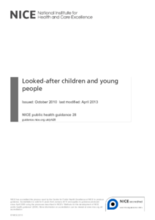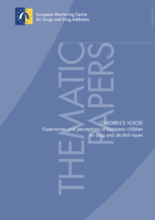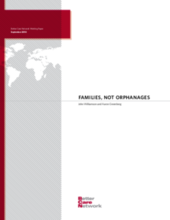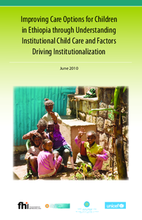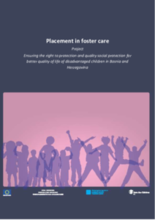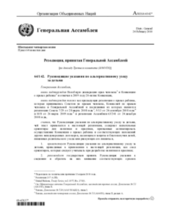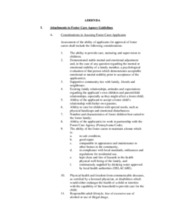Displaying 2041 - 2050 of 2223
This report examines the impacts of HIV on the care choices of children, exploring how HIV affects whether or not children can remain within parental care, and on the alternative care options open to them.
The aim of this guidance is to improve quality of life of looked-after children and young people in England, including their physical health, and social, educational and emotional wellbeing. It focuses on and encourages organisations, professionals and carers to work together to deliver high quality care, stable placements and nurturing relationships for looked-after children and young people.
Retrak Ethiopia, with support from UNICEF and members from the Ministry of Women’s and Children’s Affairs, held a 4 day training aimed to equip the participants with the skills necessary to assess potential carers, match the children with the right carers, train and follow-up the carers and children, and look at some of the key issues around attachment, origins and children’s behavior.
The purpose of this paper is to give meaning and insight into some of the key drug and alcohol issues that affect children from the perspectives of the children themselves. Research shows that large numbers of children who are separated from their parents are particularly vulnerable to developing drug and alcohol problems. Special attention is paid throughout the report on children looked after by relatives, foster carers, and institutions.
With particular attention to lower income countries, this paper examines the mismatch between children’s needs and the realities and long-term effects of residential institutions. The paper examines available evidence on the typical reasons why children end up in institutions, and the consequences and costs of providing this type of care compared to other options. The paper concludes with a description of better, family-based care alternatives and recommendations for policy-makers.
Findings and recommendations of the first national study of its kind in Ethiopia to study child care institutions, institutionalized children, and factors driving institutionalization.
This paper is based on The Latin American Report: The situation of children in Latin America without parental care or at risk of losing it. Contexts, causes and responses, which was prepared using reports from 13 countries in the region. The paper gives an overview of the state of one of the most fundamental rights - the right to parental care, a keystone for the right to live in a family and a community.
This document contains the minimum standards for placing children in foster care in Bosnia and Herzegovina. The Minimum Standards includes service specifications, instruments for monitoring compliance with standards, and guidelines for use of the minimum standards for day centers for children with developmental disabilities.
The Guidelines for the Alternative Care of Children were endorsed by the United Nations General Assembly on 20th November 2009, in connection with the 20th anniversary of the UN Convention on the Rights of the Child.
Outlines additional actions and considerations foster care workers should follow when implementing the IFCO Guidelines for Foster Care.


